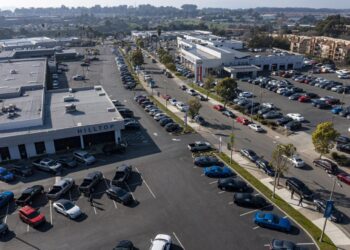Under the Hood: Industry struggles drain $31B in market cap
Seven auto lender stocks lost between 24% and 98% of their values
Auto finance company stocks took a beating in 2020, but they were pummeled even further in 2022. Fears of a recession, declining consumer vehicle demand, worse-than-expected financial results and thousands of lender layoffs sent investors scurrying for safer stocks last year. In all, the stock prices for seven auto lenders lost between 24% and 98% […]

Already subscribed? Log in

















